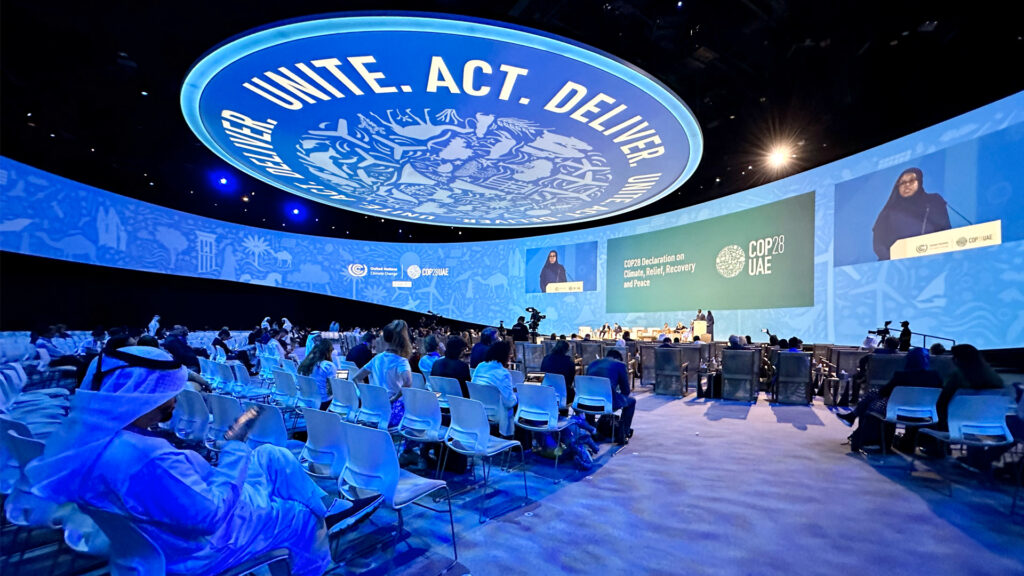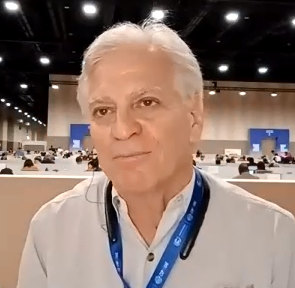By John Capece, Kissimmee Waterkeeper and Campus Climate Corps
The public should be shocked, angered, frustrated and profoundly disillusioned to learn that after 28 annual United Nations climate conferences, only this year have the world’s governments managed to agree on the obvious: The burning of fossil fuels must be dramatically reduced if a global population of more than 8 billion people expects to survive greenhouse gas-driven abrupt climate change.
Most people would assume that minimal language advocating the reduction or elimination of CO2 emissions from fossil fuels was surely included in one of the many U.N. climate agreements produced over the previous 27 years. But no, it wasn’t. Clearly, a solutions path will not be blazed by the U.N., which is limited to the pace of its most reluctant national governments.
So, who can lead? Who will lead? Leading on climate is not about just wearing a cool T-shirt, shouting at a rally or posting a snarky meme on social media. More critically, it is not about making deceptive greenwashing statements in a political campaign speech.

First, it is obvious who can’t be allowed to lead. It is the same group of politicians, business leaders and misguided people who for the past four decades consistently claimed climate change wasn’t happening and is simply a hoax.
When that mantra was rendered ridiculous, it was followed by them assertiong that climate change was not human caused. But even that deception has finally been abandoned. They are now left to pretend they never said these falsehoods, or they simply hope you forget. Recognizing that increasing public awareness requires they say something semi-rational, their rhetoric now focuses almost exclusively on adaptation, resilience and blaming other nations.
You know who these people and who their philosophical descendants are. Their current political offspring continue to use their unchanging, fundamentally misguided values and their comfort with deception to point us in equally wrong-headed and destructive directions. But don’t allow them to lead! Instead, vote for candidates who are and always have been better on the climate issue. Put aside the secondary, contentious social issues that can be sorted out in due course. Clearly, for anyone to be around to debate and resolve these secondary challenges, humans first need to survive the climate emergency.
Once elected, even well-intentioned politicians cannot solve the climate crisis. The best they can do is to support and fund the many other people who can create breakthrough technologies to place before us as viable options.
Why is transformative technology required? Because even if the USA removed its fossil fuel subsidies (and it must) and then regulated fossil fuels to death (and it should), the world would still need cheaper, clean energy sources as replacements. The logical conclusion is that we must continue to drive down the cost of solar, wind, geothermal, ocean tide/current, nuclear and some energy sources we haven’t even developed yet. The challenge is exactly the same as what analysts concluded in the 1980s: People around the world won’t quit using fossil fuels until there is a cheaper, clean alternative.
Furthermore, replacing the quantities of energy we currently consume won’t be good enough. A population of 10 billion will need more energy, lots more. Why? Because, first, the 6 billion poorer people on the planet today want and demand a higher material standard of living. That requires energy.
Second, we must adapt and become resilient. That too requires energy.

Third, we need to expend vast amounts of additional energy to suck the excess CO2 out of the air and oceans. We must undo the damage we created.
Just as blowing out a match is pointless after it has lit the drapes on fire, ending the use of fossil fuels by 2050, while necessary, won’t save us. We need to invent, build and deliver a global fire engine before the conflagration engulfs us all. It’s a tall order, but it’s all we got.
Many of the people who can help deliver real solutions attended COP28, but they were not the ones representing nations at the negotiating tables, nor need they have been. The problems of reaching agreements within and between nations are not technical, they are economic and political.
The real problem solvers instead exchange scientific information in the pavilions, innovation center and side events at COP and similar gatherings. These are the leaders in whom we must invest confidence and vast resources. Politicians and diplomats are only useful to the extent they empower the educators and innovators and then enact the solutions that innovators place upon the table.
John Capece is Kissimmee Waterkeeper and director of Campus Climate Corps. For a photo essay on COP28 from John Capece and Michal Fidler, click here.
If you are interested in submitting an opinion piece to The Invading Sea, email Editor Nathan Crabbe at ncrabbe@fau.edu. Sign up for The Invading Sea newsletter by visiting here.



